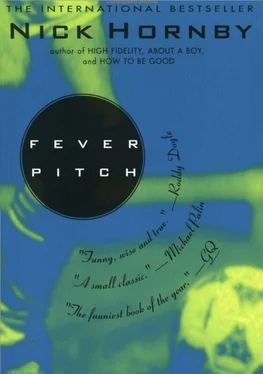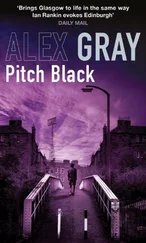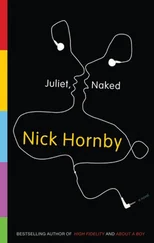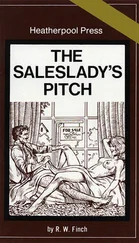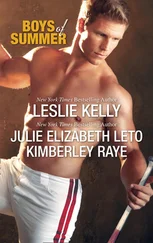So the course of the next decade was to be mapped out for Arsenal that afternoon, but I didn’t care. The previous evening Carol Blackburn, my girlfriend of some three or four weeks (I can remember watching the TV highlights of the Chelsea-Arsenal FA Cup quarter-final at Stamford Bridge with her—she was a Chelsea fan—at a friend’s house a fortnight before) had packed me in. She was, I thought, beautiful, with the long, straight, centre-parted hair and the melting doe eyes of Olivia Newton-John; her beauty had reduced me to nervous and miserable silence for much of the duration of our relationship, and it was no real surprise when she moved on to a boy called Daz, a year older than me and already, incredibly, at work.
I was unhappy during the game (I watched it from the Clock End, although I don’t know why; perhaps I felt that the focused energy of the North Bank would be inappropriate), but not because of what was going on in front of me: for the first time in nearly five years of watching Arsenal events on the pitch seemed meaningless, and it hardly registered that we lost 1-0 and blew the chance to go top. I knew instinctively, as Arsenal searched for an equaliser in the later stages of the game, that we would not score, that even if the Derby centre-half caught the ball and threw it at the referee we would miss the resultant penalty. How could we possibly win or draw, with me feeling like this? Football as metaphor, again.
I regretted our defeat against Derby, of course, although not as much as I regretted being dumped by Carol Blackburn. But what I regretted most of all—and this regret came to me much, much later on—was the wedge that had been driven between me and the club. Between 1968 and 1973, Saturdays were the whole point of my entire week, and whatever happened at school or at home was just so much fluff, the adverts in between the two halves of the Big Match. In that time football was life, and I am not speaking metaphorically: I experienced the big things—the pain of loss (Wembley ’68 and ’72), joy (the Double year), thwarted ambition (the European Cup quarter-final against Ajax), love (Charlie George) and ennui (most Saturdays, really)—only at Highbury. I even made new friends, through the youth team or the transfer market. What Carol Blackburn did was to give me another sort of life, the real, untransposed kind in which things happened to me rather than to the club, and as we all know, that is a rum sort of a gift.
ARSENAL v MANCHESTER CITY
4.10.75
I have a few programmes for the 73/74 season, so I must have been to some of the games that year, but I can’t remember any of them. I know that the following season I didn’t go at all, and that the season after that, 75/76, I only went the once, with my Uncle Brian and my young cousin Michael.
I stopped partly because Arsenal were dire: George, McLintock and Kennedy had gone, and were never properly replaced, Radford and Armstrong were way past their best, Ball couldn’t be bothered, a couple of the young players (Brady, Stapleton and O’Leary were all playing) were having understandable difficulties settling in to a struggling side, and some of the new purchases simply weren’t up to the mark. (Terry Mancini, for example, a bald, cheerful and uncomplicated centre-half, seemed to have been bought for the Second Division promotion campaign that was beginning to look inevitable.) In seven years Highbury had once again become the unhappy home of a moribund football team, just as it had been when I first fell in love with it.
This time around, though, I didn’t want to know (and neither did a good ten thousand others). I’d seen it all before. What I hadn’t seen before were the high school and convent girls who worked in the Maidenhead High Street branch of Boots at weekends; and thus it was that some time in 1974, my after-school clearing-up and restocking job (which I had taken on only because I needed to find some football money) became an after-school and Saturday job.
I was still at school in 1975, but only just. I took my A-levels that summer, and scraped by in two of the three subjects; then, with breathtaking cheek, I decided to stay on for an extra term to study for the Cambridge entrance examinations—not, I think, because I wanted to go to Cambridge, but because I didn’t want to go to university immediately, and yet neither did I want to travel around the world, or teach handicapped children, or work on a kibbutz, or do anything at all that might make me a more interesting person. So I worked a couple of days a week at Boots, went into school now and again, and hung out with the few people I knew who hadn’t yet gone on to college.
I didn’t miss football too much. I had swapped one group of friends for another during the sixth form: the football crowd who had got me through the first five years of secondary school, Frog, Larry aka Caz and the rest, had started to seem less interesting than the depressive and exquisitely laconic young men in my English set, and suddenly life was all drink and soft drugs and European literature and Van Morrison. My new group revolved around Henry, a newcomer to the school, who stood as a Raving Maoist in the school election (and won), took all his clothes off in pubs, and eventually ended up in some kind of asylum after stealing mailbags from the local railway station and throwing them up a tree. Kevin Keegan and his astonishing workrate seemed dull, perhaps understandably, by comparison. I watched football on TV, and two or three times went to see QPR in the season they nearly won the Championship with Stan Bowles, Gerry Francis, and the kind of swaggering football that had never really interested Arsenal. I was an intellectual now, and Brian Glanville’s pieces in the Sunday Times had taught me that intellectuals were obliged to watch football for its art rather than its soul.
My mother has no brothers and sisters—all my relatives come from my father’s side—and my parents’ divorce isolated my mother and sister and me from the leafier branch of the family, partly through our own choice, partly through our geographical distance. It has been suggested to me that Arsenal substituted for an extended family during my teens, and though this is the kind of excuse I would like to make for myself, it is difficult even for me to explain how football could have performed the same function in my life as boisterous cousins, kindly aunts and avuncular uncles. There was a certain sort of symmetry, then, when my Uncle Brian rang to say that he was taking his Arsenal-loving thirteen-year-old to Highbury and to ask whether I would accompany them: maybe as football was ceasing to be a potent force in my life, the joys of extended family life were about to be revealed to me.
It was strange watching Michael, a younger version of myself, agonising for his team as they went 3-0 down and huffed their way back into the game (Arsenal lost 3-2 without ever really suggesting that they would get so much as a point). I could see the distraction in his face, and began to understand how football could mean so much to boys of that age: what else can we lose ourselves in, when books have started to become hard work and before girls have revealed themselves to be the focus that I had now discovered they were? As I sat there, I knew it was all over for me, the Highbury scene. I didn’t need it any more. And of course it was sad, because these six or seven years had been very important to me, had saved my life in several ways; but it was time to move on, to fulfil my academic and romantic potential, to leave football to those with less sophisticated or less developed tastes. Maybe Michael would take over for a few years, before passing it all on to someone else. It was nice to think that it wouldn’t disappear from the family altogether, and maybe one day I would come back, with my own boy.
Читать дальше
